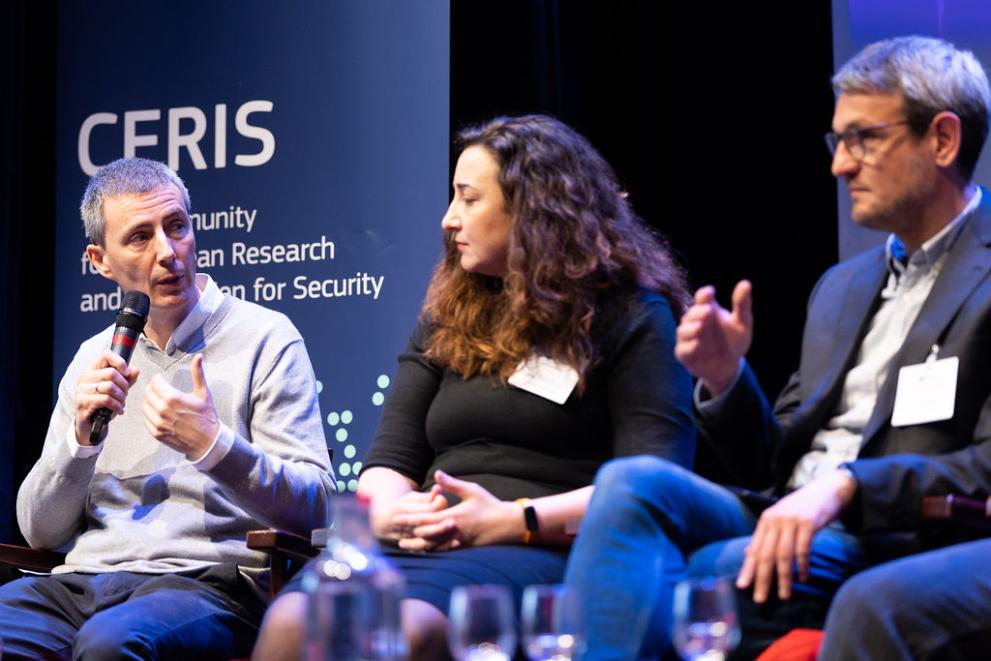
On 14 March 2023 the European Commission held a workshop in Brussels on Europol’s new role in Horizon Europe. The event gathered 120 participants and was part of the Fighting Crime and Terrorism (FCT) strand organised by the Community for European Research and Innovation for Security (CERIS).
The meeting was a response to the security research community's interest in practical aspects of Europol’s amended Regulation and its new engagement rules in Horizon Europe activities. Some 40 ongoing Horizon 2020 and Horizon Europe projects represented by researchers, engineers, police officers and industry dived into discussions on just opened cooperation paths, but also the prospect of result validation and possible deployment to front lines, especially via Europol Innovation Lab’s products and services.
From the CERIS perspective, one of the fundamental changes to the Europol Regulation is strengthening the role of the agency in the area of research and innovation. However, with this new mandate, the agency will no longer participate in projects as a beneficiary, thus its renewed procedures need to determine cooperation terms with EU security research projects. Contributing to this outcome was the ambition of this event.
The central presentation of Grégory Mounier from Europol Innovation Lab described their main activities in the research and innovation area, with a focus on contribution to the CERIS ecosystem, and the Horizon projects. In the presentation and detailed discussion that followed the participants covered among others: Europol wiki tool, low value innovation grants, code and tool repositories, or data sandbox. Several challenges were recognised like scarcity of Europol resources in comparison to the effort of monitoring, filtering, and validation of numerous outcomes. However, some solutions to cope with them were also proposed, like utilisation of experienced national Law Enforcement Agencies, including via the European Clearing Board, as Innovation Lab extensions, to boost its capacity.
The exchange continued with two panels: on lessons stemming from hitherto projects’ cooperation with Europol, and expectations towards further cooperation under the new mandate. The first panel discussed best practices, benefits and obstacles when working with Europol as a direct member of project consortia, from the point of view of researchers, national police authorities, industry, as well as Europol itself. The panellists concluded that, while it was a useful learning exercise to have Europol as a member of the projects’ consortia, its full potential as the central European LEA was not exploited, and that today the strengthened mandate opens this door. The subsequent panel developed this conclusion, reaching out to the experience of Frontex as a valuable reservoir of insight and ideas from the border management area; picturing the European Network of Forensic Science Institutes (ENFSI), as a proved concept of organising research and a practitioners’ community; and referring to the solution adopted in this area by Portuguese Policia Judiciaria, as a successful model and best practice.
The event brought together participants from EU funded projects, national LEAs (from BE, CH, EE, ES, FI, FR, GR, HR, IT, NL, NO, PT, RO, RS, SE, SI), research, industry, Europol, Frontex, CEPOL, and colleagues from DG HOME, REA and DG DEFIS. Although the final practical procedures on cooperation with the Europol Innovation Lab are not yet defined, this workshop helped to understand the CERIS community expectations, doubts, and formulate stakeholders’ recommendations for the way forward.
Details
- Publication date
- 24 March 2023
- Author
- Directorate-General for Migration and Home Affairs
